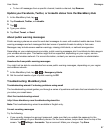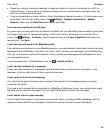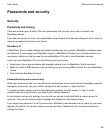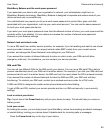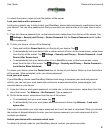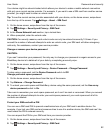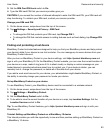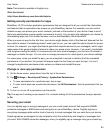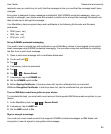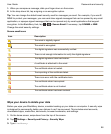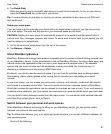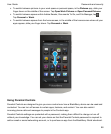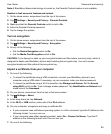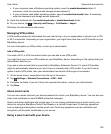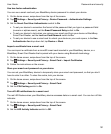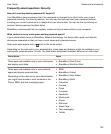
recipients use your public key to verify that the message is from you and that the message hasn't been
changed.
Encryption is designed to keep messages confidential. With S/MIME-protected messages, when you
encrypt a message, your device uses the recipient’s public key to encrypt the message. Recipients use
their private key to decrypt the message.
Your BlackBerry device supports keys and certificates in the following file formats and file name
extensions:
• PEM (.pem, .cer)
• DER (.der, .cer)
• PFX (.pfx, .p12)
Set up S/MIME-protected messaging
You need to store a private key and certificate on your BlackBerry device to send signed or encrypted
email messages using S/MIME-protected messaging. You can store a key and certificate by importing
the files from a work email message.
1.
Open a work email message with a certificate attachment.
2.
Touch and hold .
3.
Tap .
4.
If necessary, enter the password.
5.
Tap .
6.
Tap > > Secure Email.
7.
If necessary, tap the S/MIME tab.
8.
Set the S/MIME switch to On.
9.
Below Signing Certificate, in the drop-down list, tap the certificate that you imported.
10.
Below Encryption Certificate, in the drop-down list, tap the certificate that you imported.
Turn on IBM Notes email encryption on your device
To complete this task, you must add a work account that supports IBM Notes email encryption to your
device.
1.
In the BlackBerry Hub, tap > > Secure Email.
2.
If necessary, tap the NNE tab.
3.
Set the NNE switch to On.
Sign or encrypt a message
You must use a work email account that supports S/MIME-protected messages or IBM Notes mail
encryption to send a signed or encrypted email message.
Passwords and security
User Guide
95



